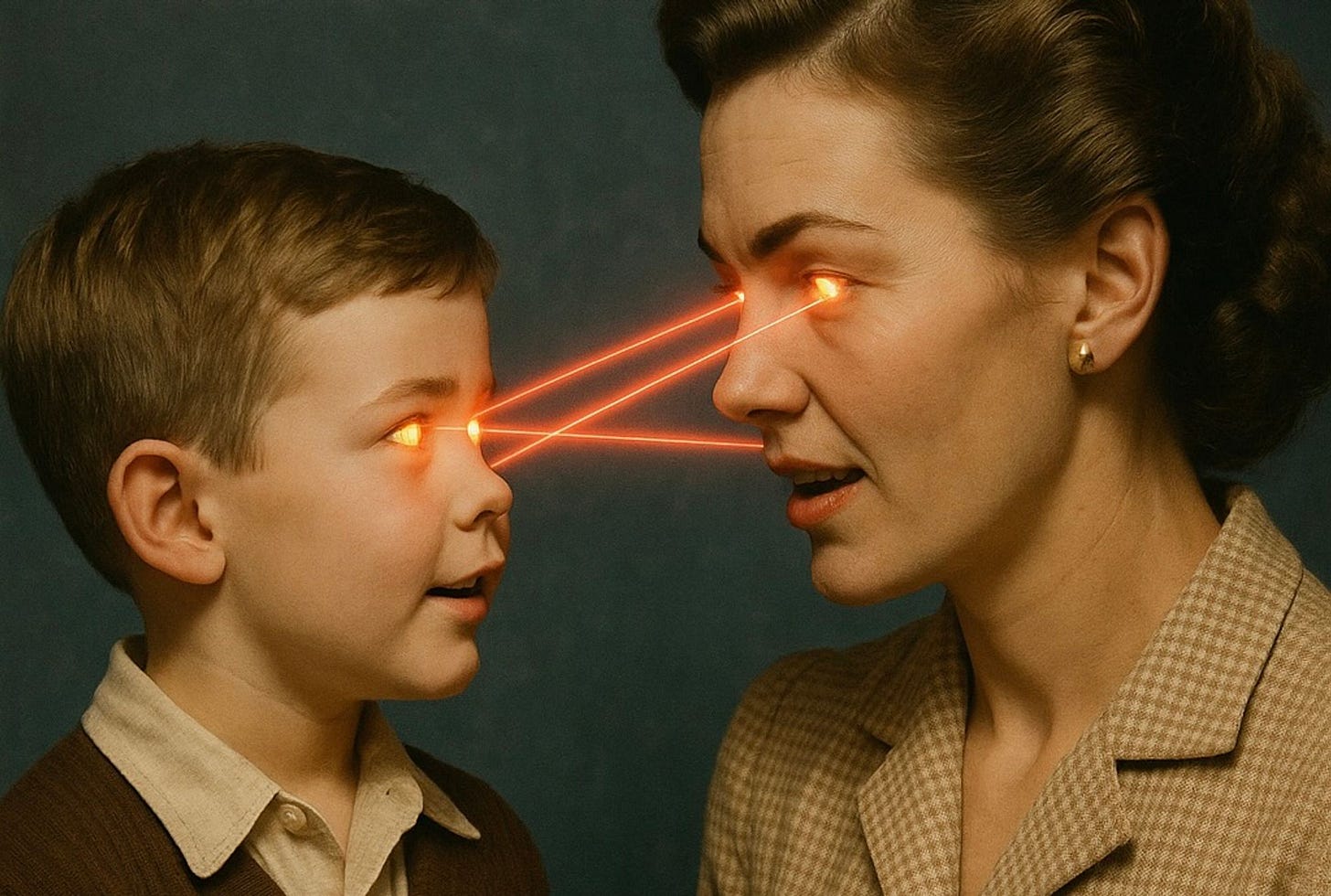Toward a Maternal Gaze
What might a writer gain from motherhood? A dispatch from Pioneer Works Broadcast
Over the next month, we’ll be highlighting select pieces from Pioneer Works Broadcast, a virtual and annual print magazine, that we think readers of The Believer will love. If you enjoy this dispatch, you can find the full article on the Broadcast website.
We’ve heard the warnings: children will drain your time, your money, and your focus. But what might a writer gain from motherhood? Kate Shannon Jenkins writes toward a maternal gaze, and considers the creative perils and promises of parenthood:
I had for years repeated the mantra “book before baby.” But eventually, time went by, and the book did not sell, and I was getting older. I wondered if rejecting the good thing I did have the power to conjure was only self-punishment for my powerlessness to wangle that other good thing I wanted (but might never get).
So I had the baby, and a few years later I had another, even as I lived in terror that they might prove the adorable Trojan horse by which failure and unhappiness and doom would be ushered into my life. But now that I’ve crossed the divide, I feel that, for as necessary as the despairing maternal accounts are, lately there may have been an overemphasis on what a writer loses to motherhood, and little discussion at all of what might be gained.
I have often wondered if our historic squeamishness about the dark side of motherhood might owe in part to our collective determination to uphold the fantasy that we ourselves, the readers, were loved without any trace of hatred or resentment. By now the cat is out of the bag. Lately any time motherhood appears as a subject, it is to provide a stark counterpoint to the pretty picture of contented maternity, revealing instead a gothic inner landscape of anger and desperation. The message—beware procreation—no longer comes from non-mothers in the form of ideological appeals to female liberation, but from mother-writer-ghouls in the form of dispatches from Hell.
Children undoubtedly make time, money, and deep focus scarcer, particularly for women, but assuming—big assumption, I know—that a writer isn’t too mired in caretaking to continue writing, couldn’t her motherhood also occasion new experiences, perspectives, and depths of feeling that might be conscripted as fresh, powerful material? Might there be such a thing as a “maternal gaze”? To be sure, the term is often used in child psychology, particularly when studying the impacts of a mother’s visual attention and responsiveness on the child’s development. But I am here referring to a way of seeing that is particular, or at least much more accessible, to those who have lived as a mother-figure (of any gender). Indulge me. If the male gaze sees desired objects, and the female gaze sees autonomous beings with desires of their own, the maternal gaze sees something further: those desires locked in a merciless struggle with responsibility to others.
This is the second dispatch from Pioneer Works Broadcast. You can read the full essay on their website.
Related articles from The Believer:
“Walled Gardens” by Kate Shannon Jenkins
“Outlaw Mothers: Constance Debré in Love Me Tender” by Chloé Caldwell
An Interview with Sheila Heti, conducted by Cara Blue Adams







